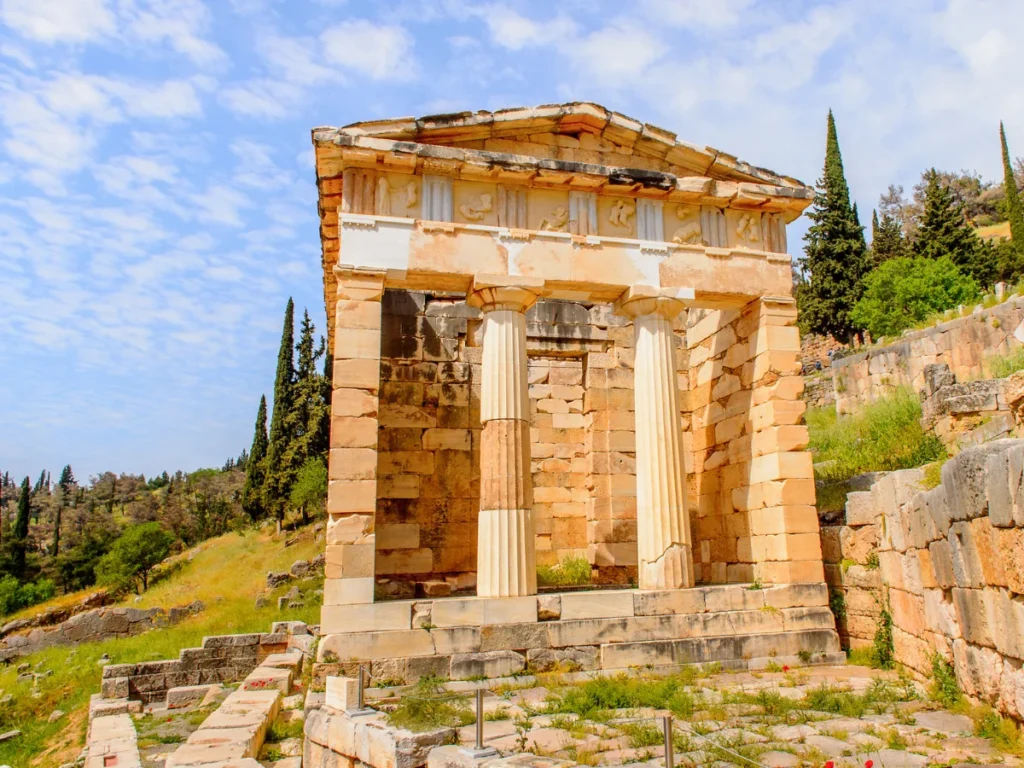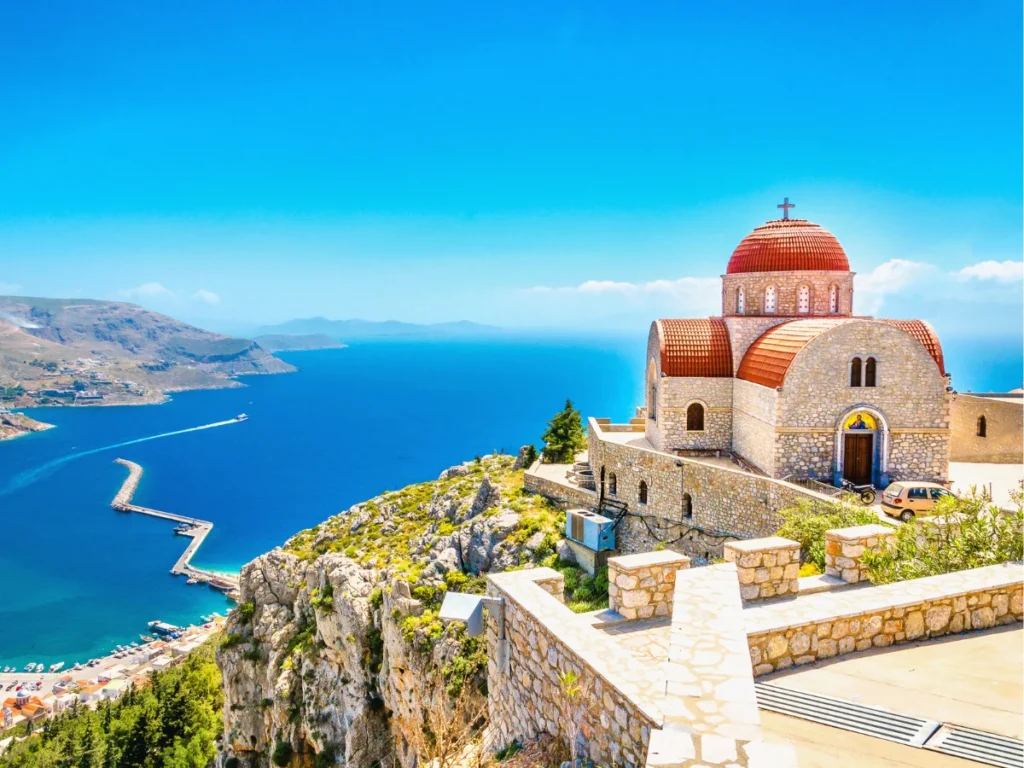The city-state Aegina
The city-state Aegina held a unique maritime identity and cultural significance in ancient Greece. Positioned strategically in the Saronic Gulf, it thrived as a maritime power, excelling in trade and shipbuilding. Its distinctive Aeginetan silver stater and renowned pottery showcased its economic influence. While its dynamic relations with Athens played a role in its decline, Aegina’s enduring legacy lies in its maritime heritage, cultural contributions, and economic prowess in the ancient Greek world.

The city-state Aegina in Ancient Greece
Strategic Island Location
Aegina, a small island in the Saronic Gulf, held a unique place in ancient Greek history due to its strategic maritime location. Its proximity to Athens and the Peloponnese positioned it as a vital hub for trade, commerce, and naval activities.
Thriving Maritime Culture
Unlike larger city-states such as Athens or Sparta, Aegina’s size and geography shaped its identity as a maritime power. Aegina’s inhabitants were skilled seafarers and traders. They cultivated an economy centered on maritime activities such as fishing, shipbuilding, and maritime trade routes.
Economic Prosperity
Aegina’s success as a maritime power was reflected in its economic prosperity. The island’s production of high-quality pottery and the Aeginetan silver stater, a widely recognized currency, demonstrated its economic influence in the region. Aegina’s coinage was highly regarded, further enhancing its reputation.
Relations with Athens and Regional Influence
Aegina’s dynamic relationship with Athens was characterized by both alliance and rivalry. Athens initially recognized Aegina as a formidable maritime power and a potential threat. However, their relations deteriorated, leading to conflicts such as the Aeginetan War. Athens ultimately emerged victorious, asserting its dominance over Aegina.
Cultural and Religious Contributions
Aegina’s cultural impact extended beyond its maritime influence. The island was home to a renowned temple dedicated to the goddess Athena, attracting pilgrims and worshipers. The Aeginetan sculptural style, characterized by its distinctive smiling motif, left an artistic legacy that echoed through time.
Decline and Enduring Legacy
Aegina’s prominence waned after its subjugation by Athens and the rise of other powerful city-states. Nevertheless, its maritime legacy, economic influence, and cultural contributions persisted. The Aeginetan silver stater remained a symbol of ancient Greek coinage, and the island’s maritime heritage continues to be celebrated.
Aegina’s Unique Impact
Aegina’s distinct maritime culture, economic success, and cultural contributions set it apart from larger and more prominent city-states like Athens and Sparta. Its role as a maritime power, trading hub, and artistic influencer showcased its niche in the intricate mosaic of ancient Greek civilization. While its prominence diminished over time, Aegina’s legacy as a maritime and cultural powerhouse endures in the annals of history.
More History

Princess Cynisca
Princess Cynisca, an exceptional figure in ancient Greece, defied gender norms by achieving Olympic glory in chariot racing, leaving an inspiring legacy.

Pericles
Pericles of Athens, a visionary statesman, elevated democracy in ancient Greece, steering the city-state’s Golden Age with inspiring oratory and leadership.

Apollo
Apollo, the multifaceted god of ancient Greece, embodied music, prophecy, and healing, illuminating both the arts and human spirituality.
